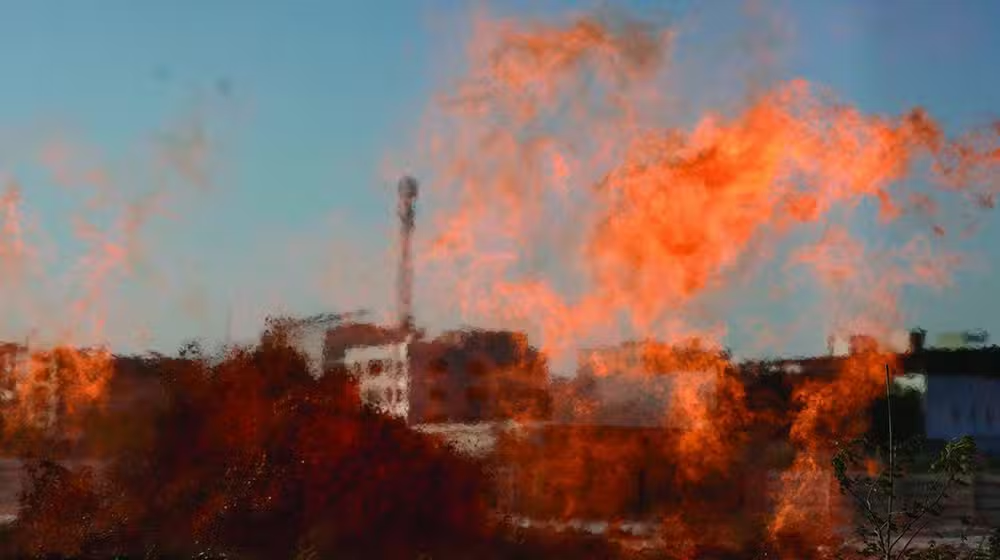A mysterious fire that erupted during drilling operations in the Korangi Creek area of Karachi has drawn national attention, prompting urgent measures by Pakistan Petroleum Limited (PPL).
Experts from PPL, in collaboration with environmental and chemical specialists, have determined that the fire originated due to the accidental release of underground gases, following drilling for a borehole intended for a high-rise construction project.
Subsequent to the incident, an in-depth chemical analysis of soil and groundwater samples from the affected region revealed alarming levels of hazardous substances.
Chemical Unveils Toxic Compounds in Soil and Water
These findings have raised red flags, not only about the impact on local ecosystems but also concerning human health and safety, especially for the nearby residential zones.
The process includes the deployment of advanced gas suppression systems, injection of neutralizing agents, and controlled venting techniques to manage the volatile gas emissions safely.
The government’s strategy doesn’t end with fire suppression. Authorities have confirmed that once the situation is under control, they plan to extract and utilize the discovered gas pocket, capitalizing on the potential energy reserves found beneath Korangi Creek.
Initial assessments had downplayed the fire as a result of surface-level gas seepage, but the continuous flame compelled experts to conduct deep subsurface explorations. These investigations revealed a pocket of shallow biogenic methane, a gas produced through the decomposition of organic matter trapped within sedimentary layers.
TPL Properties’ Parallel Discovery
TPL’s filing detailed that their drilling and excavation procedures were supported by comprehensive geotechnical and environmental impact assessments, carried out in partnership with recognized local and international consulting firms.
These assessments included air quality tests, gas migration studies, and subsurface mapping to ensure minimal environmental disruption.
The presence of benzene and toluene in groundwater and soil is particularly concerning due to their long-term health impacts. Prolonged exposure to these compounds can result in respiratory issues, nervous system disorders, and increased cancer risk.
Environmental activists have also voiced concerns, urging transparency and continuous environmental monitoring to prevent long-term ecological degradation.
PPL’s Roadmap for Safe Gas Extraction
As containment efforts progress, PPL has outlined a multi-phase plan for the safe extraction of gas and the restoration of the contaminated site.
- Sealing and stabilizing the fractured strata to prevent further gas leakage.
- Implementing a comprehensive gas capture and storage system to harness the methane for industrial use.
- Soil and water remediation programs utilizing bio-remediation and chemical neutralization techniques.
- Community health assessments and medical support for affected populations.
The company has also committed to ongoing monitoring of air and water quality in collaboration with the Sindh Environmental Protection Agency (SEPA).
The unexpected discovery of biogenic methane in Karachi’s Korangi Creek presents a significant opportunity for Pakistan’s energy sector.


